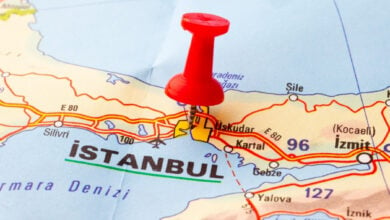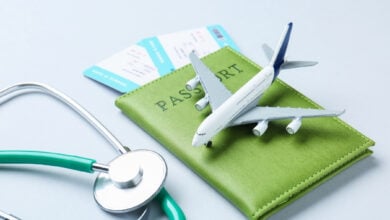International Health Insurance
Health insurance for international patients and visitors in Istanbul is very important and easy to use. Short stay travel policies and long stay international plans are accepted at many private hospitals, often with direct billing at partner clinics. English speaking teams help with pre approvals, claims, and digital cards, so you can focus on care, not paperwork.

Straightforward talk first. If you are visiting Istanbul for travel or treatment, have health insurance that works in Türkiye. Private hospitals usually offer fast access and English-speaking staff, but they may ask for upfront payment unless your insurer can guarantee payment directly. Good insurance also covers medical evacuation if you need to fly home or to another country for care. This guide explains what is required, what is smart, and how to use your policy step by step.
Who this guide is for
Tourists, companions, and international patients coming for planned care (e.g., dental, cosmetic, IVF, bariatric, orthopedics). It also helps foreigners who plan to stay longer in Istanbul and need a residence permit.

Key truths in one minute
- If you apply for a Turkish visa, you must have medical insurance valid for your stay.
- Many nationalities enter visa-free for short visits, but insurance is still essential for emergencies and evacuation.
- If you apply for a residence permit in Türkiye, you must show valid health insurance covering the permit period.
- EHIC/GHIC cards are not valid in Türkiye. Bring real travel health insurance.
- Standard travel insurance usually does not cover planned procedures. If you are coming for treatment, look at specialized complications cover and get clear hospital quotes in writing.
Do you need insurance to enter Türkiye?
Visa applicants
If you need a Turkish visa, you must attach medical insurance valid for the whole stay to your application. This is a standard requirement stated by the Ministry of Foreign Affairs. If your nationality is visa-exempt for short visits, you do not file a visa application, so this specific rule does not apply—but you should still carry insurance for your own protection.
Residence permits (stays beyond short tourism)
When you apply for a Turkish residence permit (ikamet), you must prove you have health insurance that covers the entire requested period. The migration authority explains what kinds of policies are accepted and notes special rules for students (for example, students who join the public system within three months of enrollment may not need separate private insurance). Always check the current list of acceptable proof and make sure your policy dates match your application dates.

What insurance types actually work in Istanbul?
1) Travel medical insurance (short stays)
This is for trips measured in days or weeks. It focuses on unexpected illness or injury, 24/7 assistance, and medical evacuation. Choose a plan with high medical limits and evacuation coverage. Keep your assistance phone number handy. Many providers overseas ask for cash or card at the time of service, and your insurer reimburses you later. Some hospitals can arrange direct billing if your insurer issues a letter of guarantee, but it is not automatic.
What it usually covers
- Emergency treatment and hospital stays for a new illness or accident
- Ambulance and clinic visits as defined in the policy
- Medical evacuation and repatriation (when medically necessary)
What it often does not cover
- Planned procedures abroad (e.g., a pre-booked surgery). Most standard travel policies exclude this.
- Some pre-existing conditions, unless the plan offers a waiver under specific purchase rules.
- High-risk activities or mental health emergencies, depending on the policy wording.
Read your exclusions. If your main purpose is medical treatment, see “Complications insurance” below.
2) International private medical insurance (IPMI)
If you travel often or plan a longer stay, consider a global health policy. These plans work like major medical insurance across countries, often with direct-billing networks in Istanbul. They usually cost more than short-trip policies but cover broader care (inpatient/outpatient, maternity options, chronic conditions) and can include evacuation. Check that your chosen Istanbul hospitals are in network, or expect to pay and claim.
3) Turkish “residence permit” policies
For residence permits, insurers in Türkiye sell policies designed for foreigners staying over short-tourist limits. They usually pair emergency cover with inpatient/outpatient benefits as written in the policy schedule. To avoid delays, make sure the policy start/end dates match your application and that the company is recognized locally. Keep a digital copy for your online application.

4) If you are coming for planned treatment (medical travel)
Most standard travel insurance excludes planned medical procedures and any complications arising from them. If you want protection for complications after planned surgery or dental work, look for a specialized medical-tourism complications policy. Buy it before the procedure date, and confirm the covered window (e.g., 30–90 days after surgery) and the covered complications. Always ask your clinic which policies they have seen successfully used by past international patients.
Using insurance in Istanbul: how payments work
Public vs. private hospitals
Istanbul has large public hospitals and a wide network of private hospitals and clinics. International visitors often choose private hospitals for faster access, private rooms, and international patient desks. Many well-known private hospitals hold international accreditation (you can check current status on the JCI directory).
Direct billing vs. pay-and-claim
What happens at the desk? It depends on the hospital and your insurer. Some facilities can contact your insurer’s assistance center and request a letter of guarantee. Others will ask you to pay by card or cash and provide a full invoice (fatura) and reports for reimbursement. The Ministry of Health’s official portal for international patients notes that accepted payment types and currencies vary by hospital. If direct billing matters to you, ask the hospital before the visit.
What to bring for admissions
- Passport and a photocopy
- Your insurance card and the 24/7 assistance number
- Policy PDF and any pre-authorization emails
- Medication list and allergies, translated if possible
- Local phone number and an emergency contact
Documents to keep for claims
- Itemized invoice (fatura) and receipt
- Medical report or discharge letter with diagnosis/treatment
- Test results (labs, imaging)
- Ambulance or clinic records with dates and times
Emergency care: what to do
Step 1: Call 112
In Turkey, the emergency number is 112 for ambulance and urgent help. Tell the dispatcher your location and symptoms. If you can, also call your insurer’s assistance center so they can guide you and alert a hospital.
Step 2: Carry ID and contact the insurer
Bring your passport and insurance proof. Ask the hospital to contact your insurer’s assistance team for a guarantee of payment. If that is not possible, you may pay and claim later. Many overseas providers expect cash or card at the time of service.

Step 3: Keep every paper
Keep the itemized bill, medical report, and test results. If medication is prescribed, keep the pharmacy receipts. Take photos of everything as a backup.
Planned care: avoid surprises
Get a written quote
Ask for a pro forma that lists surgeon fees, anesthesia, hospital nights, implants, lab tests, medications, and follow-up visits. Ask what happens if you need ICU or an extra night. Ask how refunds work if surgery is delayed for medical reasons.
Ask about coverage (be specific)
- Will my standard travel policy cover any part of this? (Usually no if it is planned.)
- Does the hospital accept my global health insurer for direct billing? If yes, do I need pre-approval?
- Do I need a complications policy and how long does it protect me after surgery?
Check medicines and prescriptions
Some medicines that are common at home are controlled in Türkiye. If you travel with medication, carry it in original packaging with a copy of your prescription, and check official guidance before flying.
Quality signals and how to verify
Look up the hospital on the Joint Commission International (JCI) directory to see if it is currently accredited. Accreditation does not promise an outcome, but it shows a facility has passed an external audit for safety and quality. You can also contact HealthTürkiye (the Ministry of Health’s official portal for international patients) for guidance and support; they list a 24/7 support line and links to treatment planning tools.
Special note for long-term stays and workers
If you work in Türkiye or hold certain residence statuses, you may be enrolled in the national system (SGK/GSS) through your employer or by meeting eligibility criteria. Public coverage focuses on state facilities and set benefits. Many residents still keep private insurance for access to private hospitals, English-speaking coordinators, and broader networks. For residence-permit applicants, private insurance that matches your permit dates is typically required at the application stage.

FAQ
Is travel health insurance mandatory for all tourists?
It is mandatory for visa applicants. If you do not need a visa for a short visit, you are not asked to show insurance at the border in most cases, but strong insurance is still a smart choice.
Are EHIC or GHIC cards accepted in Türkiye?
No. EHIC/GHIC do not work in Türkiye. You need your own travel medical insurance.
Will U.S., UK, or other home-country health plans pay the hospital directly?
Often no. Many overseas providers expect payment at the time of service. Your insurer may reimburse you after you send documents, or may arrange a guarantee of payment through their assistance company if the hospital agrees.
Does standard travel insurance cover my planned surgery in Istanbul?
Usually not. Most policies cover unexpected illness or injury only. If you are traveling for a procedure, consider a complications policy designed for medical travel, and confirm the covered window and events.
What number do I call in a medical emergency?
Dial 112 for ambulance and urgent help anywhere in Türkiye. Then contact your insurer’s assistance center.
Checklist: before you fly
- Buy travel medical insurance with high medical and evacuation limits (and consider a complications policy if you are coming for treatment).
- Save the insurer’s 24/7 assistance number in your phone and on paper.
- Carry your policy PDF, passport copy, and any medical letters.
- Ask your Istanbul hospital about direct billing, accepted payment methods, and what documents they need from your insurer.
- If applying for a residence permit, make sure your insurance dates cover your requested permit period.
- Check rules for carrying medications into Türkiye and keep prescriptions with you.
This page is general information, not legal or insurance advice. Policy terms vary. Always read your policy wording and confirm details with your insurer and clinic.
References
- Republic of Türkiye, Ministry of Foreign Affairs — “General Information About Turkish Visas” (insurance requirement for visa applicants).
- Presidency of Migration Management (Directorate of Migration Management) — Residence permit information and insurance requirement.
- Presidency of Migration Management — Residence permit types (student insurance notes).
- U.S. Department of State — Country Information for Türkiye (overseas care often requires cash payment; medevac strongly recommended).
- UK Foreign, Commonwealth & Development Office — “Health in Turkey” (112 emergencies; EHIC/GHIC not valid; medical tourism cautions).
- European Commission — EHIC scope and where it applies (not Türkiye).
- HealthTürkiye — Official Ministry of Health portal for international patients (24/7 support; hospital info; payments vary by hospital).
- Joint Commission International — Directory to verify current hospital accreditation.
- CDC Yellow Book (2025) — Travel insurance considerations and exclusions to review.
- NAIC (U.S. National Association of Insurance Commissioners) — Travel insurance topics and common exclusions.
- Compare the Market (AU) — Medical tourism and standard policy exclusions for elective treatment.



